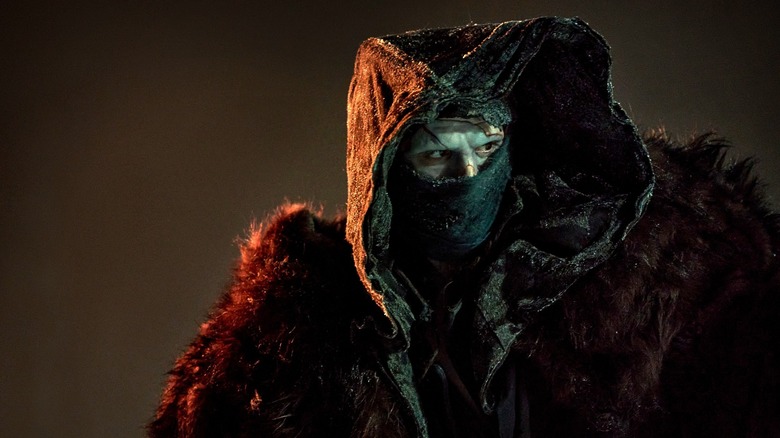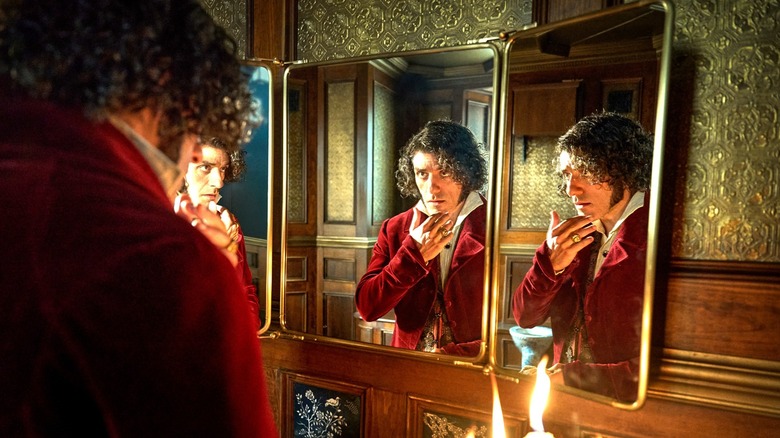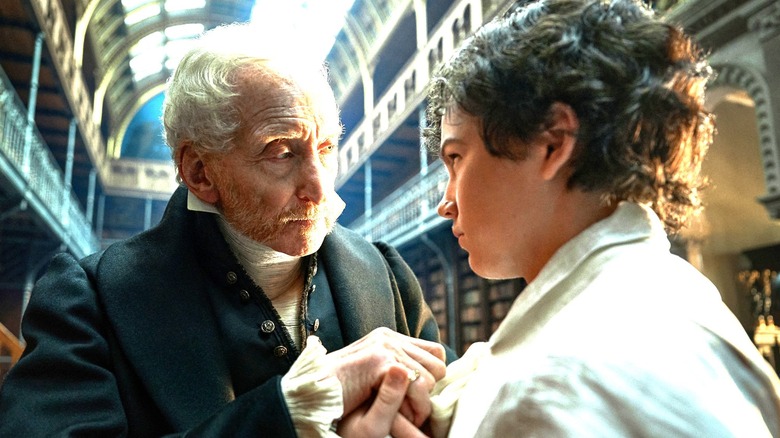Guillermo Del Toro's Frankenstein Makes One Major Change That Improves The Book [TIFF 2025]
This article discusses changes made from the source material for Guillermo del Toro's "Frankenstein," just in case you consider that a spoiler.
The most impressive part of Guillermo del Toro's "Frankenstein" is how it understands the most interesting element from the original book: this story's main character, Victor Frankenstein, kind of sucks. Much has been written about how book Victor abandons his own creation mere seconds after he comes to life, but not enough has been written about how indecisive Victor is, how often he procrastinates, and how he dwells in self-pity.
When the monster in the book asks him to build another creature for him to live with, Victor says yes, but then procrastinates for several months. He eventually builds the new creature, but decides to trash the project at the last moment. When the monster responds by making the most obvious veiled threat against the life of Elizabeth, Victor's fiancée, Victor delays telling her anything about the situation until it's too late, and is somehow surprised when the monster makes good on his promise. Ethics aside, this behavior of Victor's is just annoying.
But while the book's Victor is meant to be flawed, he's not the real villain. Despite what some on the internet might tell you, Mary Shelley didn't intend Victor Frankenstein to be an object of mockery or contempt for the audience, nor did she portray the monster as an innocent saint. Victor's indecisiveness is meant to be a sympathetic response to the sheer horror inherent to his story; his abandonment of his creation is a failure on his part, but an understandable one given how scary the creature is supposed to look.
Guillermo del Toro's version of Victor (played by Oscar Isaac) also sucks as a person, but here he's a more proactive, intentional brand of terrible. The movie tells a similar tale of Victor fundamentally failing his creature, but this time that failure is borne through Victor's actions, not his inaction. This version of Victor doesn't run away the second the monster opens his eyes; this Victor sticks around to make everything worse.
Most modern adaptations sanitize their source material; 'Frankenstein' refuses to
Guillermo del Toro's depiction of Victor as more of an active jerk than a passive loser is the best choice the movie makes, and it feels especially refreshing because most adaptations would never take such a route. The more popular adaptive choice in recent years is to sand down the characters' rougher edges, not make them even rougher.
Another Netflix adaptation, "The Sandman," had that common problem, but perhaps the most obvious example of the sanitized approach is HBO's "Game of Thrones." That show was terrified to take its fan-favorite character Tyrion to the moral depths he descends to in the books. The show decided Tyrion would have to remain likable, and they sacrificed his cunning and his depth to make that happen. The result was an increasing reliance on misunderstandings and conveniences to keep the plot kicking along, an approach that eventually reached its breaking point with fans in the infamous season 8.
This recent "Frankenstein" adaptation is the rare case of the book being more guilty of this problem than the later movie. The book, with its apparent need to keep its main character sympathetic, must constantly hide behind Victor being in denial or confusion to keep the series of tragic events on their planned course. So much of the tragedy in the book is the result of Victor not being able to conceive the consequences of his actions or inactions, even though those consequences seem obvious to any reader remotely familiar with the conventions of the genre.
The book's saving grace is its unreliable narrator aspect; there's room for readers to assume that Victor is not being fully honest about his understanding of the situation, which allows for the more interesting interpretation that he's more of a coward than an idiot. The movie had the option of embracing Victor's claims of ignorance, but it chose otherwise; Guillermo del Toro offers a version of Victor Frankenstein who is undeniably responsible for his own actions.
The characters in del Toro's 'Frankenstein' have more agency than ever before
I reread the novel in the week before watching "Frankenstein" at the Toronto International Film Festival on Tuesday, and the big thing that surprised me this time was how passive everyone in this book was, not just Victor. In the book, Elizabeth comfortably sits on the sidelines, expressing concern for Frankenstein's situation but never demanding answers or pushing him to change. Victor's father is a similar non-presence; he can tell Victor's going through something heavy, but he never seriously steps in to help.
In the movie, Elizabeth (Mia Goth) and Frankenstein's father, Leopold (Charles Dance), have forceful personalities. They make their opinions known, and they insert themselves into Frankenstein's arc. These changes don't necessarily make either character more likable than their source material counterpart, but they definitely make them more interesting.
It's the changes with Frankenstein's father that really help this movie stand out from most other "Frankenstein" adaptations, expanding on the book's themes of fatherhood in a fresh, exciting way. In his Q&A after the movie's second public screening at TIFF, del Toro explained how his goal with the movie was not to make a 100% faithful adaptation, but to take on the same autobiographical approach Mary Shelley took with her novel:
"The only commitment you make is: it'll be as painful and as biographical for me as it was for [Shelley]," del Toro said. "I'll speak not about a monster and a creator, but about me and my father and me and my kids. And it'll be difficult to talk about it, as it must have been difficult for her."
"Frankenstein" releases in theaters for a limited run on October 17, 2025, and will drop on Netflix on November 7, 2025.


